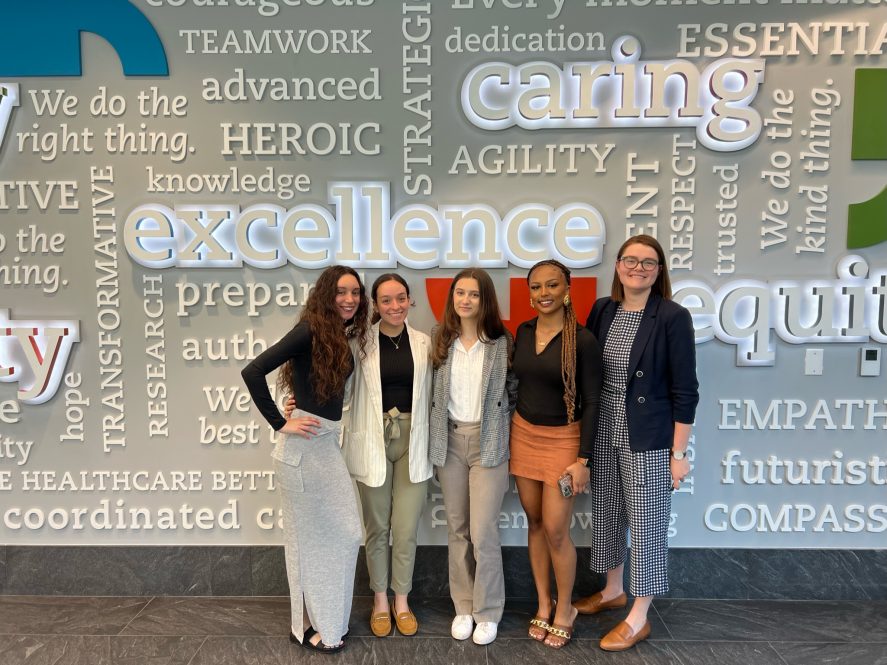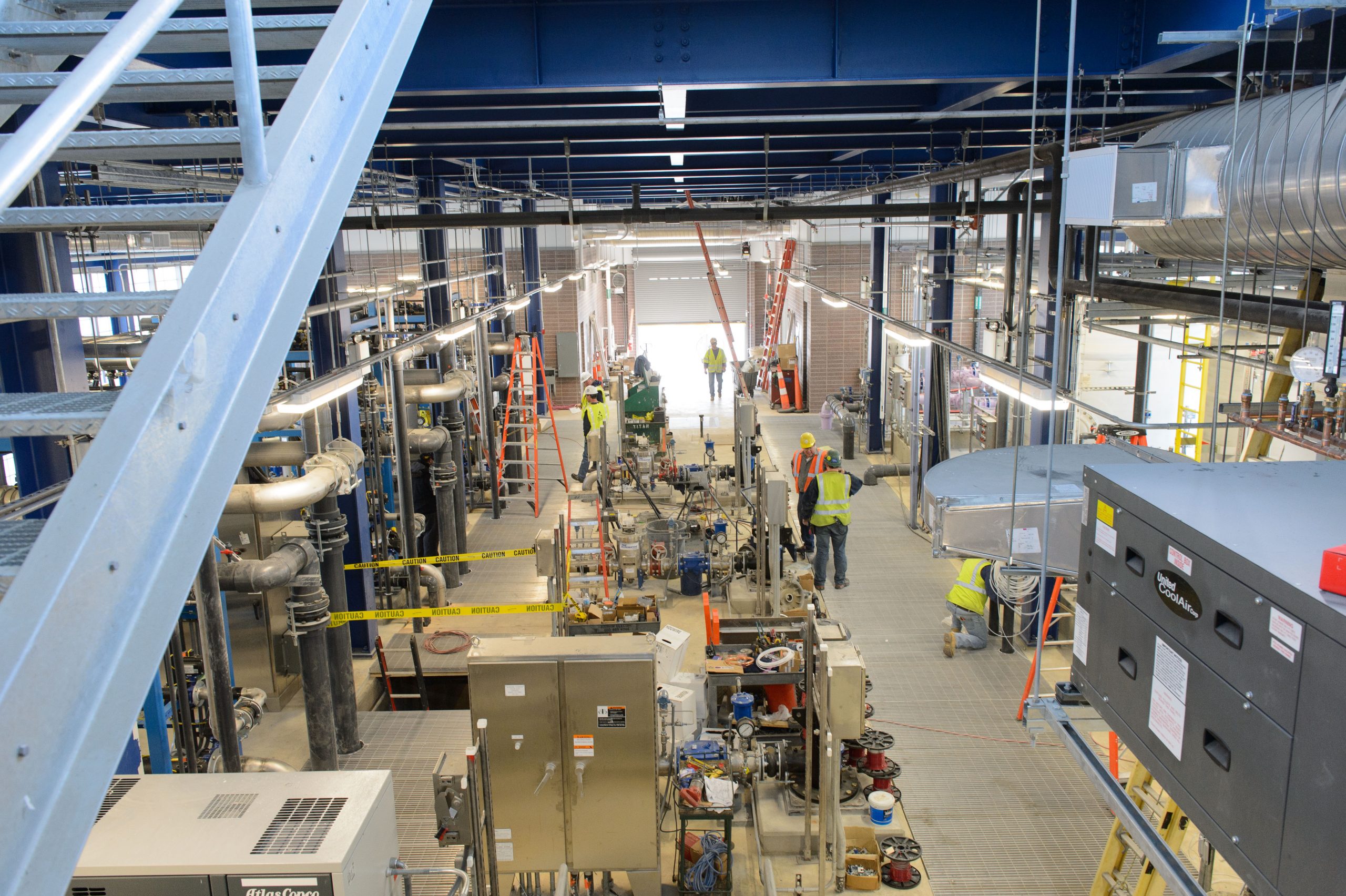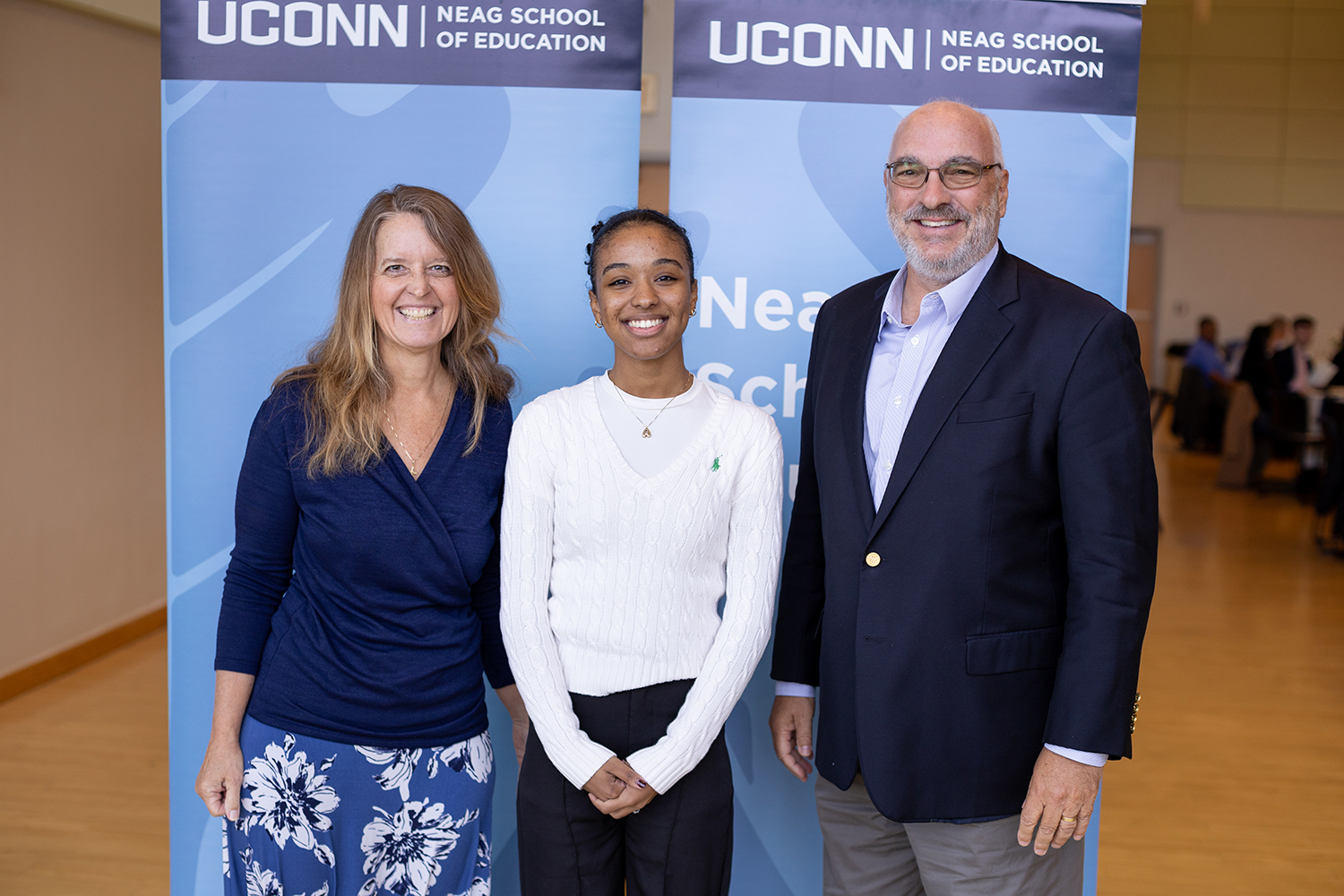A lot of things about medicine have changed since Dr. James Cardon started practicing more than 30 years ago.
Cardon is currently an executive vice president and the chief clinical integration officer of Hartford HealthCare, and he’s a cardiologist by training. Three decades of medical innovations mean that the world of cardiovascular care looks a lot different than it did when he was just starting out.
“Stuff I never imagined would happen is routine, and all of that is innovative,” Cardon explains. “You know, the fact that we’re replacing aortic valves with a catheter is insane. When I started practice, you wouldn’t even have thought that was possible, yet it’s now become no big deal – nobody even thinks about it.”
But Cardon says the part of practicing medicine that hasn’t changed nearly as much in the last 30 years is how patients engage and interact with the health care system, and that system often creates barriers for people who lack access to it – or who might not have much trust in it at all.
“We’re getting to the point to where we have all the tools and the medications to take really good care of people, yet we still find these huge disparities – people not on appropriate therapy, people having difficulty getting into care, all sorts of things that are really not improving the outcomes of the patients that we’re serving,” he says. “And that’s because we’ve not innovated in the way we’ve delivered care. We’ve innovated the medicine behind it, but not the delivery of care.”
Innovation is key, he says, and sometimes it takes engaging people outside of the system – people with fresh eyes, fresh perspectives, and fresh ideas – to truly innovate change.
Which is one reason why Hartford HealthCare partnered with UConn’s Peter J. Werth Institute for Entrepreneurship and Innovation this past spring and summer on a unique pilot program called HeathWerx to engage some innovative new perspectives – and to offer UConn undergraduates a transformative close-up look at community health.
Welcome to the Neighborhood
“The HealthWerx program was brought in as a way for UConn students to really begin to engage hands-on with health care equity issues,” says Zoey England ’22 (CLAS), the chief of staff at the Werth Institute who led the first HealthWerx cohort. “A lot of times students don’t see those sorts of things or have opportunities to do that before going into graduate programs.”
HealthWerx was conceived as an experiential learning program centered on health care innovation. The program started with a course in the spring 2023 semester that carried into a full-time internship over the summer.
HealthWerx was geared toward students with an interest in health care issues, but opened to undergraduate applicants from all UConn schools and colleges from all majors.
“Anyone who was really interested and excited about diversity, equity, inclusion – because most people don’t really think about health equity early on,” says England. “If people were excited about that, then this space was for them to come and apply those sort of skill sets to health care.”
It was over the spring semester that the eight students in the pilot cohort were engaged to learn about social determinants of health and the health care access and disparity issues people face in both urban and rural Connecticut communities.
For many in the cohort, England notes, it was the first time that they were thinking about concepts of entrepreneurship and how those concepts might fit into their own goals, both personal and professional.
It’s also where the students partnered with Hartford HealthCare’s Neighborhood Health teams.
In the depths of the COVID-19 pandemic, Cardon says that Hartford HealthCare realized it needed to do something different in order to reach some of Connecticut’s most vulnerable populations.

“We had committed to make sure that no communities were left behind – we were not going to look back at this and realize that in Hartford, or downtown Bridgeport, we were going to find that, hey, we did it again,” he says, and to meet that need, Hartford HealthCare launched a new mobile testing and vaccination initiative, partnering with local community organizations on the effort.
“We did a much better job than I think many anticipated, in terms of getting vaccines to people and trying to control that,” Cardon says. “Still not where it needs to be, but better.”
The initiative worked well at both engaging members of the community in need of access to health services and at building trust and vital new partnerships, and as the impact of the pandemic began to ease, Hartford HealthCare didn’t want to lose that progress.
Post-pandemic, the initiative transitioned into the Neighborhood Health program that currently operates with two mobile teams and a variety of partnerships with community organizations around the state. The Neighborhood clinics work to connect community members not only with health care services, but also social services and other needs.
“We’re not just out there checking blood pressures and doing blood tests,” Cardon explains, “but oftentimes we are supplying basic needs – reading glasses, a pair of shoes, a place to shower, trying to connect them into social services when people are really lost and don’t know what to do.”
The model is working, Cardon says, and Hartford HealthCare is looking for ways to scale it into more areas of the state. But even within the model, there are still challenges, including how to make it sustainable and more accessible.
And that’s where the students were able to offer a fresh perspective.
“As we worked with leadership, the goal was to help coach and mentor the students and have them go, learn, come back, identify problems, come up with solutions to those problems that could have an impact, and allow us to figure out how do we then take those and continue to move,” Cardon says, with the idea not being a one-off.
“This could be a multi-year effort,” he says, “with certain students handing off their projects to other students as they come on, to build something in a really robust way and to encourage some very young, thoughtful people, not encumbered with the burdens of history, to come in and ask, ‘You know, why are you doing it that way?’”
“The first half was about understanding what community health is, and we specifically looked through the lens of Connecticut,” says Sophia Manos ’24 (CLAS), a physiology and neurobiology student and Werth Innovator who took part in the pilot cohort. “We looked at data sets and different stories to really bring it home and focus on the environment around us and what people are actually going through.
“And then the second half was building upon that, but understanding what entrepreneurship is, because for a lot of us, we aren’t learning about that elsewhere. So, understanding first what it is, and then how you can apply entrepreneurship to things like community health.”
Identifying Opportunities
Unlike Manos, Genesis Rosario ’24 (CAHNR), an allied health sciences major, wasn’t a part of the Werth Institute when she decided to join the HealthWerx pilot cohort. Rosario is from Hartford, and she’s a McNair Scholar with a strong interest in research, but HealthWerx interested her because of its focus on both innovation and community.
“Not only do I want to innovate medicine, I want to make sure that I can learn more about the community that I came from,” she says. “HealthWerx was really an open opportunity for students from different backgrounds to just look at the counties of Connecticut and look at the public health system in different areas – people with higher income have different insurances, learning about Medicaid versus Medicare – things that I didn’t even understand.”
During the spring semester, in addition to weekly discussions with England in class, Manos, Rosario, and the cohort members visited various Neighborhood Health clinics, interacting with the staff there, speaking with patients, and pitching in to lend a hand.
“I specifically went to the Covenant Soup Kitchen in Willimantic, where I helped with not only food preparation and things like that, but with clinical intake,” Rosario says. “I was there helping with the maintenance, but I was also there looking at the clinic, seeing the functionality of when patients come in.”
Each location was different, Manos explains, and no day at one of the clinics was the same.
“You might go to one location where the neighborhood is predominantly Spanish-speaking,” Manos says. “A lot of people that come in don’t speak English as a first language, so we’re seeing that barrier to access.”
After spending time in the clinics working alongside the staff and their community partners, the students broke into pairs to develop ideas for solutions to some of the problems they identified.
For Rosario and her partner, one of their proposed solutions was the addition of Neighborhood Health ambassadors to the clinic, who would serve as communication and service conduits between clients and providers.
“They could come into the clinic and help in the waiting room areas,” she says. “Some of the patients just sat there, and they looked very timid. Where am I? What’s going on? Who’s going to give me the shot? That kind of thing. And if we had the Neighborhood Health ambassador program, it would allow people to go into the clinic and be that vessel for communication, be that vessel for comfortability.”
Cardon says that feedback from his teams about engagement with the UConn students, and about the proposals they offered, was positive.
“A lot of the folks who jump into this work, they are engaging, they want to bring people along, and they bring a passion to this that just is infectious,” he says. “They see this opportunity of working with students is an opportunity to coach and mentor. As the pilot ran down and the students identified their opportunities, now we have to look at that and say, you know, they were really good ideas, but how to we continue the progress, implement it, refine it, and build on it as we go forward?”
Immersive Experiences
Five of the initial eight cohort students – including Rosario and Manos – continued on into the summer portion of HealthWerx, and each student was matched with a partner company for an immersive 30-hour-per-week internship experience.
“We worked with Connecticut Innovations and CT Next to identify startups that would be willing to accept interns and would be a great place for them to really delve in and see innovation hands on,” says England. “And so, we had four at different startups and one at Hartford HealthCare Innovation.”
Rosario was matched with Intellihealth, where she worked remotely with the startup’s team on its Evolve platform – an app working to connect care providers with patients who are seeking specialized obesity-related treatment and support – and helped with developing candidate searches, learning how to use AI technologies to help in that process.
The experience opened a whole new world of possible opportunities for Rosario that she says she didn’t know were possible in the health care space.
“I never knew that there was literally a digital startup world that really focused on certain needs – I didn’t know this,” says Rosario, who says she hopes to potentially launch her own nonprofit startup one day, with a focus on health literacy in lower-income communities. “I think entrepreneurship can be expansive, and it’s important.”
The internship experience also opened a world of new possibilities for Manos, who interned in-person with Hartford HealthCare Innovation. She got to see how a hospital system runs from the inside, learn how they conduct research studies – a strong area of interest for her – and experience working within a professional office culture.
But she also made meaningful connections with new mentors and, like Rosario, found examples of new opportunities that she didn’t know existed within the field.
“Going into it, I always had in my mind that I’ll go through undergrad, then I’ll try to go toward grad school and get down that research path and be academic, but this really opened a lot of doors for me, just seeing the different roles within health care,” she says. “Maybe you’re not a clinician, but there’s other spots where you can make change and innovate. And I think that’s really empowering.”
And it’s those takeaways that England says demonstrate the importance of experiential learning opportunities like HealthWerx for students at UConn.
“There isn’t a substitute for experiential learning,” she says. “You can be in the classroom and learn about these sorts of things, but getting on the ground and truly seeing them in the community, especially local communities that you’re interacting with already and are a part of – it really drives home those points. And I think that it really accelerates learning and help students begin to formulate that ‘why’ – why are they doing these things? Why are they sitting in the classroom learning?”
While the future of the HealthWerx program is still being evaluated following its pilot year, a second cohort of students will have an opportunity to find their “why” in a similarly styled two-semester pilot program – this time focused on climate and sustainability – that began this fall.
For more information about entrepreneurial and educational opportunities available through the Werth Institute, visit entrepreneurship.uconn.edu.


